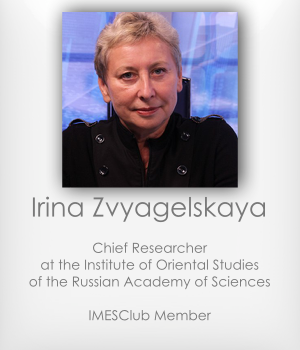 Many countries condemn HAMAS as a terrorist organization. How will the accord between HAMAS and FATAH influence the attitude of international community towards Palestine? What are the potential outcomes of the union for the Palestinians themselves?
Many countries condemn HAMAS as a terrorist organization. How will the accord between HAMAS and FATAH influence the attitude of international community towards Palestine? What are the potential outcomes of the union for the Palestinians themselves?
HAMAS is in fact is widely considered as a terrorist organization. Moreover, the Egyptian government has prohibited the HAMAS activity after the “Muslim Brotherhood”. However, the peace process between the Islamists and FATAH, which took many years without any result, is close to the conclusion. Let’s hope that it will not reverse. It is an important achievement for Palestinians to overcome severe territorial (Gaza – West Bank), ideological and political divides. A united government allows to carry more responsible international policy and to adopt decisions, which will not be canceled, as they will be backed by a consolidated position. The achieved unity strengthens the Palestinian positions in negotiations with Israel. One should not forget that it is an asymmetric conflict between a powerful regional state and a national movement, the Palestinian administration. The international community is not unanimous at the interpretation of the agreement between HAMAS and FATAH. There are already concerns that the Palestinian positions will get harder and that the HAMAS will impose the more radical line on the whole Palestinian government. It is evident that Mahmoud Abbas has made his first sharp statement-condemning Holocaust to chase away such concerns, to show that they are not justified.
The talks between Abbas and Israel ate to end today, 29 April. The decision about the truce with HAMAS and the union of the two parts of the country was taken just before this long awaited event. How is it possible to interpret such turn of events? Does it mean for example that the Palestinians were not willing to the truce with Israel?
As I have already said, firstly, this reflects the desire of Palestinians to strengthen their positions on the negotiations. They are the ones mostly interested in the fair reconcilement, but the movement towards peace becomes very difficult due to the approach to the discussion of principle and most painful questions of utmost importance for both parties – Jerusalem, territories and refugees. On the one hand, the current Israeli government does not have a great desire to make important compromises. On the other hand, it is more and more difficult to content with another set of interim measures – there is a growing criticism in the Palestinian society, mainly among the youth who do not see any prospects. In such context the agreement with HAMAS will alleviate pressure on the administration. The accord with HAMAS does not only reflect momentary issues, but it shows an evolution of Palestinian Islamists towards the political pragmatism. Having arrived at power in Gaza in 2006, they had to gradually acquire the management experience, take responsibility for the survival of the population in the conditions of blockade. This normally has a sobering influence on those who has got used to rely mainly on the methods of force. The movement was conducting a social work among the population, but had to increase its scale in the new circumstances. HAMAS has not renounced the ideological principles crucial for it: it does not recognize Israel and the Oslo process agreements and it does not condemn terrorism. This allows Israel to refuse from the negotiations with HAMAS, but not the contacts with them. It is enough to recall the efforts that have led to release of the captured Corporal Gilad Shalid. HAMAS has made a certain path and its further evolution will be faster in the context of collaboration with Palestinian leaders skilled in politics. The creation of national unity government will mean an agreement with the principle “two peoples – two states”, which in fact means both recognition of Israel and readiness to negotiate with it.
How grave for Palestine is the Israeli announcement that it will cease transferring money (about 100 million USD) gathered as taxes on behalf of the West Bank government?
Such kind of sanctions will be painful for Palestinians, they will leave employees without salary; deteriorate the general situation on the West Bank, which does not have a big budget anyway. Unfortunately, it is not the first time when Israel resorts to such measures.
Inteviewed by A, Zavadskiy.
Previously published on the MGIMO web-site in Russian.












